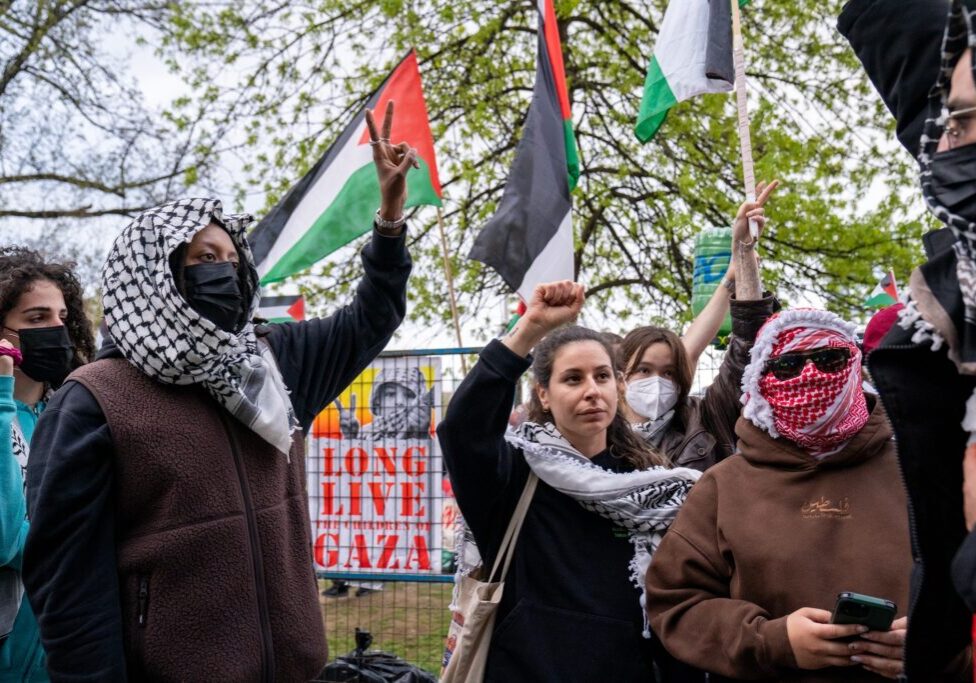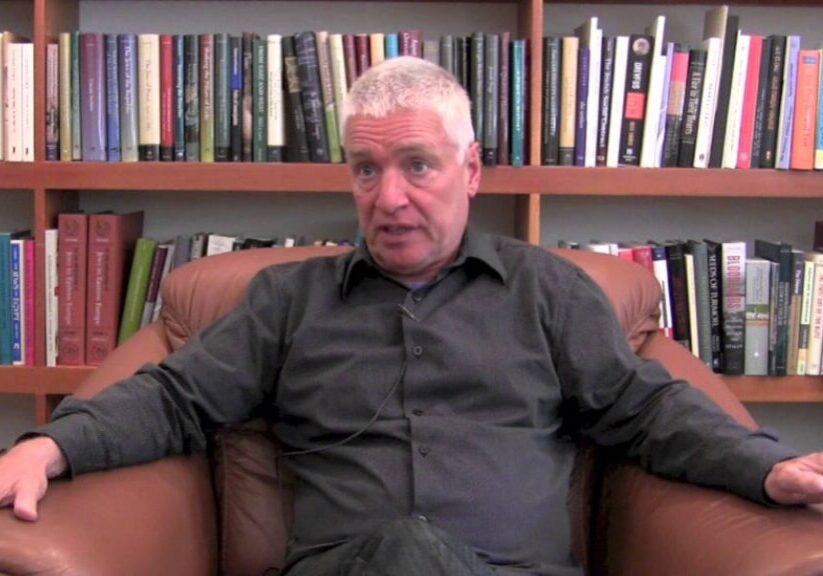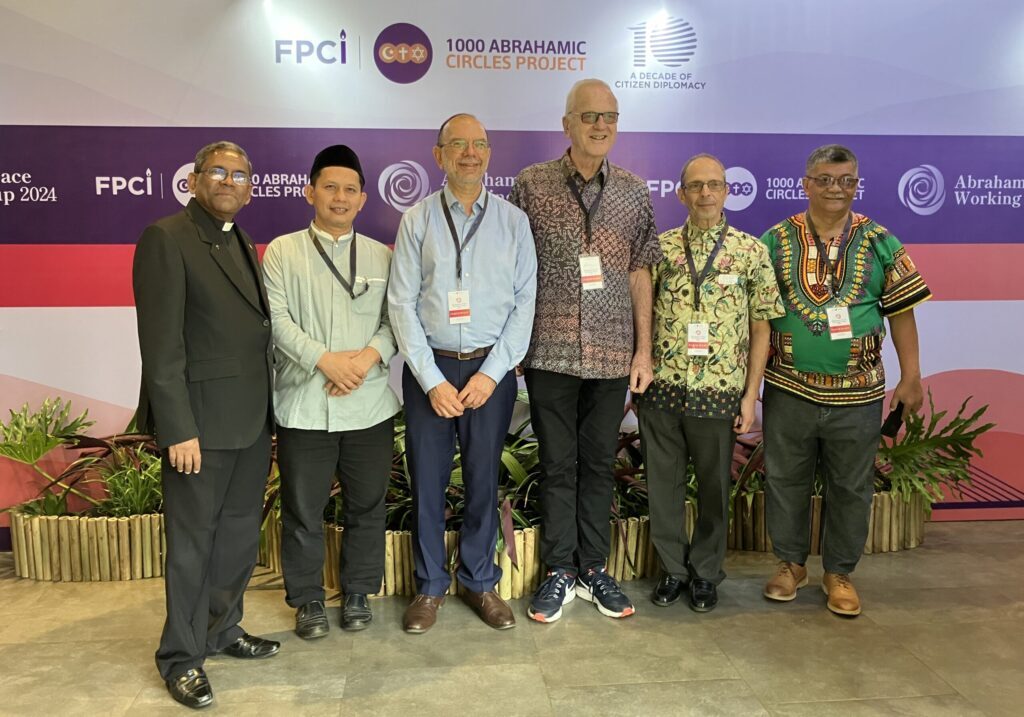Australia/Israel Review
Asia Watch: Mixed Messages
May 27, 2008 | Michael Shannon
There were, as usual, some mixed signals from Indonesia as Israelis and Palestinians alike paused to consider 60 years of the Jewish state. The lead negative item was an international anti-Zionist conference at the University of Indonesia in Depok, West Java, held to coincide with the anniversary celebrations in Jerusalem.
The two-day event, “Freedom and Right of Return: Palestine and 60 Years of Ethnic Cleansing (Naqba)”, was midwifed by an assortment of Indonesian politicians (including former reformist leader Amien Rais), activists and academics from 20 countries (including two rabbis from the anti-Zionist Neturei Karta sect and Australia’s own Holocaust-denier Dr. Fredrick Toben, described in the program as “Director of Adelaide University”).
Proceedings were launched by Agung Laksono, the speaker of Indonesia’s DPR (People’s Representative Council) and the vice chairman of Golkar (the largest party in the governing coalition). He declared that “Israeli soldiers, in a planned manner, murder and destroy the Palestinians. Villages are bombed, homes are destroyed and their fields are burned… We condemn the ethnic cleansing of Palestinians by Israel.”
Others chimed in to the one-sided talk-fest. Dr. Zahra Mustafawi, coordinator of the International Union of NGOs Supporting Palestinian Rights, added to the demonisation with the following: “They [Israelis] are celebrating the cruel attacks they have launched against Palestinians, where many old people, children, women and innocents were killed. So, this is their nature to celebrate the crimes, and at the same time they expect Germany to be ashamed of the so-called Holocaust.”
President Susilo Bambang Yudhoyono reportedly withdrew from a keynote role at the conference for unspecified reasons. Whether this was because of the bellicose tone of the meeting, one can only speculate.
Palestinian ambassador to Indonesia Fariz N. Mehdawi told the Jakarta Post that Indonesia establishing a diplomatic relationship with Israel would jeopardise Palestine’s efforts to resolve the conflict in the Middle East, and that all countries had to disengage from Israel to pressure the Jewish state towards a settlement of the conflict.
“If you engage with Israel and think it will help them, you are wrong. It will just make them even more arrogant and stubborn,” Mehdawi said.
Jakarta’s expressed desire to play a bridging role in the Arab-Israel conflict could not have been helped by such a conference. Establishing an upgraded diplomatic relationship with Israel, rather than just unofficial contacts, would seem to be the most logical step.
On a positive note, official statements from Jakarta suggest there is some cautious optimism about prospects for Israel-Palestinian peace. Foreign Minister Hassan Wirayuda told the Jakarta Post on May 8 that “Both sides, for their own reasons, have the need to bring this conflict to an end. There’s light at the end of the tunnel,” he said. “We support Palestine to be a state in their area and live peacefully side by side with Israel.”
Wirayuda also, nonetheless, stated that a major stumbling block was Palestinian disunity, especially the exclusion of Hamas from peace negotiations. “You must never set up conditions. That’s not a dialogue. You may not be compatible with Hamas, but they’re significant. They rose to the top of power through a democratic election… so they can’t be dismissed,” he said.
Also on the positive side of the ledger, the Jakarta Post published on May 9 an opinion article from Israel’s ambassador to Singapore, Ilan Ben-Dov, titled “Israel at 60: What it means to be the Zionist state”.
Equally noteworthy was another article in the same newspaper by University of Indonesia academic Bantarto Bandoro, also chief editor of the Indonesian Quarterly published by the influential Centre for Strategic and International Studies. The sober and non-ideological assessment of the Israel-Palestinian conflict points to an emerging and constructive pragmatism in elite Indonesian political circles:
Israel is perhaps the only country in the world whose establishment was approved by the UN, but it is also the only country whose legitimacy has been called into question…
It is obvious that Israel is trapped in a pincer movement, a psychological attack on the one hand and a military attack on the other. The sources of the attacks may have originated from the Arab-Muslim world as well as the West.
The issue of Israel-Palestine has pushed the world community, according to their respective national interests, into two opposing camps…
President Susilo Bambang Yudhoyono has a strong ambition to play a mediating role in the conflict, but Indonesia can only play such a role if it maintains constant contact with both Palestine and Israel.
For more than three decades the Palestinians have “convinced” Indonesia and other members of world community that Israel is the enemy…
Whatever policies Indonesia may initiate in the future with regard to the Israel-Palestine conflict, they will have little impact as long as Indonesia refuses to deal directly with Israel.
We all know Israel is living under an existential siege, and will fight for its survival.
Indonesia cannot help but acknowledge the political reality that perhaps in 60 years’ time, Israel will still be there.
Tags: Anti-Zionism, Indonesia






